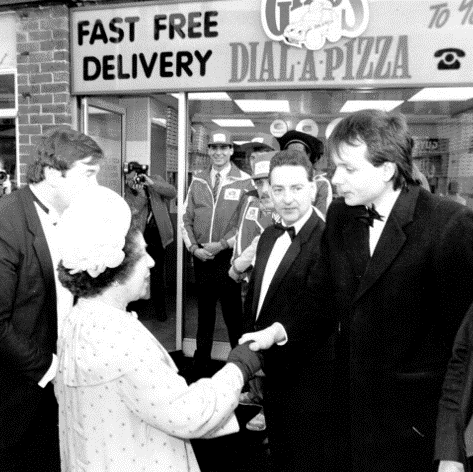- 16 October 2024
- Michael McGrath

In 1984, at the age of 21, I had only one clear insight about my career so far—I hated construction. So, I left the family business in the UK and headed to Australia, without a plan, other than the plan to get some better weather. I landed a job at a hotel in South Perth, which has since been knocked down, and took up a second gig delivering pizzas. That’s where the idea struck me: why not bring pizza delivery back home?
After six months of soaking up all the pizza know-how I could, I returned to the UK and opened my first pizza home delivery shop in 1986. The concept was still very new and novel back then, and over the next four years, we scaled up to 84 stores, becoming the number two player in the market. What then appeared was a huge credit squeeze and a deep recession, interest rates quickly skyrocketed to 17%! The banks became unreasonable. Having leant money overseas which they were not getting back, they turned their attention to businesses, seeking to dramatically reduce their exposure – they asked us to halve our overdraft overnight! The game had changed.
This led to my first foray into raising capital. After 28 stores, I secured £650,000 from venture capitalist Russell Smith, who took a 26% stake in the business. That helped fuel our expansion. Fast forward to 1992, and we then sold the business to Scott’s Hospitality, a listed Canadian company which operated the Perfect Pizza brand in the UK. They had 120 stores to our 84, so the deal seemed like a natural fit.
This was my first experience with M&A, and looking back, I didn’t do a great job selling the business. I undersold it. We were so focused on keeping the potential sale under wraps that we didn’t explore all our options—especially internationally. There were several US fast food chains that would have paid handsomely for our footprint, which would have saved them five years.
It was a classic case of fear driven decision-making. I didn’t want our franchisees, staff, or suppliers to know we were considering selling, so we went with the first offer that felt right. In hindsight, we could’ve done much better by taking the business to a broader market. But as I later learned, most private business deals happen this way—90% of owners sell to the first or second party that knocks, especially if that knock coincides with a moment of reflection or a period of vulnerability about the future.
The concern about it becoming widely known that the business is for sale is very valid. That information can and often is, used by competitors, also spooking staff and clients. However, it was only years later, when I hired Oasis Europe in London, that I discovered how to go to the widest possible market without it becoming widely known what’s going on. The penny dropped!
It was an invaluable lesson. And it’s a story that resonates with many business owners I talk to today. Don’t sell yourself short. Securing genuine strategic interest, rather than handling opportunistic approaches is what drives value and makes the whole exercise more worthwhile for everyone.
Best,
Mike
Get in touch if you’d like to to discuss your exit strategy.

